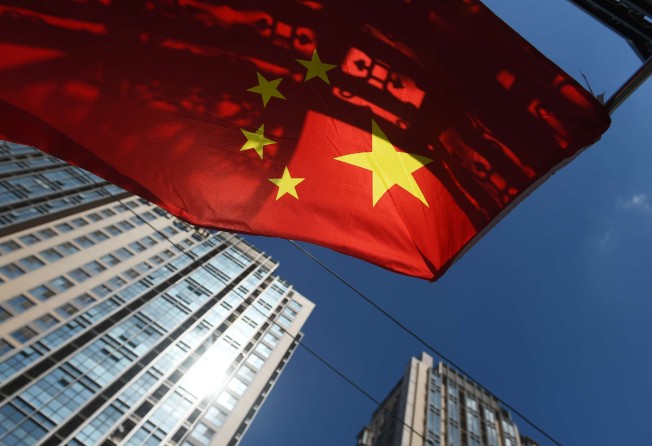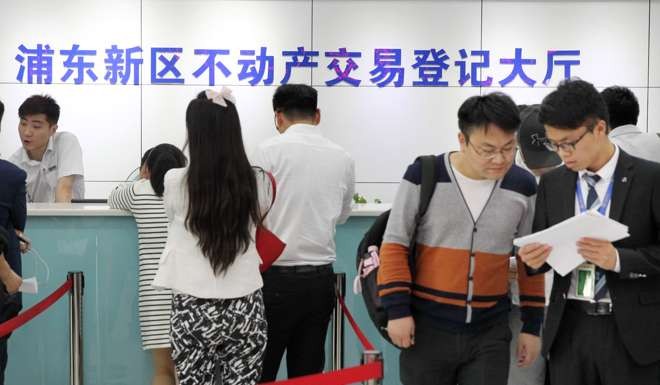China’s latest quick property fix ‘skin deep’ – fails to tackle frenzy’s foundations, analysts say
Clampdown on property speculation seen as cosmetic touch-ups rather than real cure

China’s latest clampdown on housing market speculation is only skin-deep, leaving fundamental land and fiscal problems unresolved, analysts say.
While the newly imposed measures appear harsh by banning many potential buyers from buying property and squeezing bank supply for property deals, many rules are merely top-ups of existing restrictions to further depress demand, and fail to address the root problems underlying China’s property market frenzy. These include local government reliance on land deals for revenue, the absence of a property tax to discourage speculation, and a lack of investment alternatives to accommodate the flood of funds unleashed by the monetary authority.
While instructions from Chinese President Xi Jinping and Premier Li Keqiang to tame housing prices are instantly noted, local authorities still rely on selling land for income, an increasingly sought-after asset in large cities as supply dries up, so they have the least incentive to engineer a fall in property prices.
“The measures seem to target the symptoms of the problem instead of the real causes,” said Li Weisen, an economics professor at Fudan University. Li added that administrative measures to restrict home purchases could, at best, only achieve short-term results.
Li Xunlei, the chief economist for Haitong Securities in Shanghai, said one true long-term remedy was to increase the supply of land, rather than reduce it in some major cities, and to grant greater fiscal autonomy to local governments.

Land prices in Suzhou and Hangzhou all doubled or even tripled in the first three quarters of this year from a year earlier, according to data compiled by the China Index Academy, which tracks land deals. Rocketing land prices mean that property prices are not expected to fall. On a nationwide basis, revenue from land sales grew 14 per cent to 2 trillion yuan (HK$2.3 trillion) in the first eight months of the year, compared with total fiscal revenue growth of 6 per cent, to 11 trillion yuan in the same period, according to finance ministry data.
Meanwhile, Beijing is refraining from expanding a property tax. China has trialled a property tax in Shanghai and Chongqing since 2011, but the programme wasn’t implemented strictly due to the lack of a real estate registration system – it’s not known who owns which properties, making it impossible to tax. Detailed rules for real estate registration didn’t come into effect until January 2016, and the implementation process is slow.
In 2013, for instance, Gong Aiai, an employee with a local state bank in the northwestern Chinese province of Shaanxi, was discovered to have bought 41 properties in Beijing, using embezzled funds and forged identity certificates. She was charged with forging government documents and sentenced to three years in jail.
Haitong’s Li said Beijing still lacked the determination to roll out a property tax. “A property tax or capital gains tax, if not correctly handled, could be problematic and lead to home prices plummeting and even trigger social problems,” Li said.
Jia Kang, a former researcher with China’s Ministry of Finance, was quoted by the China Business News, on Tuesday as saying that measures targeting buyers alone were far from enough as land ownership, investment policies and taxation were left out.
“Property tax is not a panacea, but it is a clear option” to sort out China’s property market, Jia was quoted as saying.
China still has a nationwide oversupply problem, but its major cities have recorded almost uninterrupted housing price rallies in the past two decades.
Soaring home prices trigger social issues among different groups – complaints from the grass-roots sector due to the widening wealth gap, despair by the younger generation who see little opportunity to climb the class ladder, bitterness tasted by entrepreneurs who find returns on homes can easily eclipse those from industrial investment, and growing anxiety among the middle class about whether parking wealth in homes is the best way to guard assets.
The current policy is not enough despite the latest round of cooling measures
“The current policy is not enough despite the latest round of cooling measures,” said Zhu Haibin, JP Morgan’s chief China economist. He said there were no substantial new measures, and local governments were not going to be wholeheartedly against property inflation.
Industrial Bank’s chief economist Lu Zhengwei said government efforts to dry up credit supply in the property market might work, but the measures to curb buying could also backfire, as such measures fanned panic-buying or even led to fake divorces to bypass rules barring families from owning too many properties.
“The problem is the instructions from Beijing came too late,” Lu said.